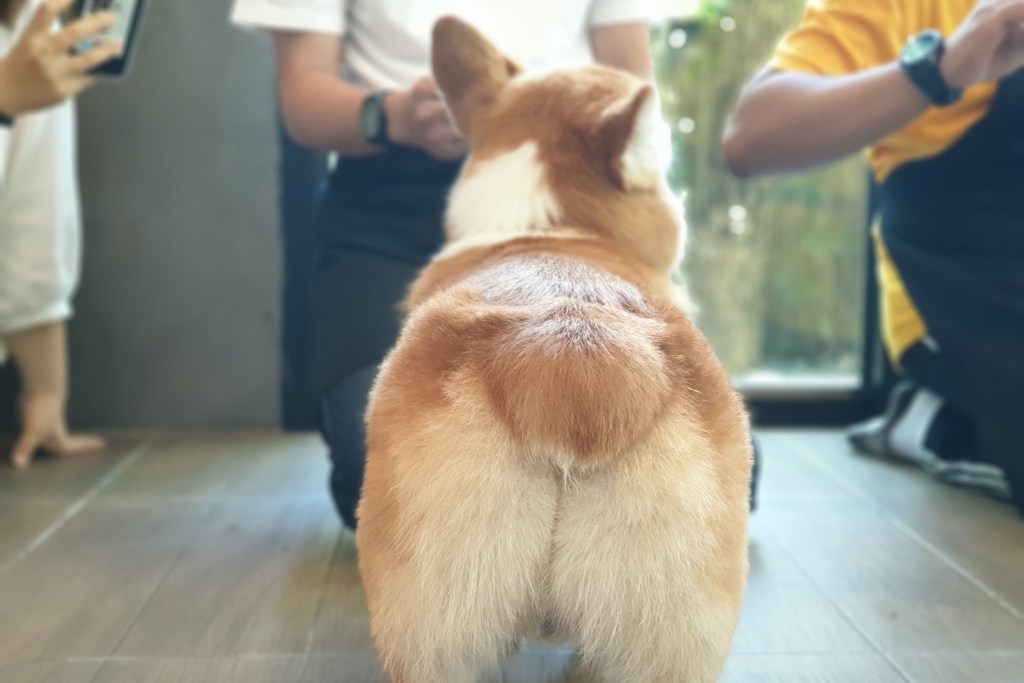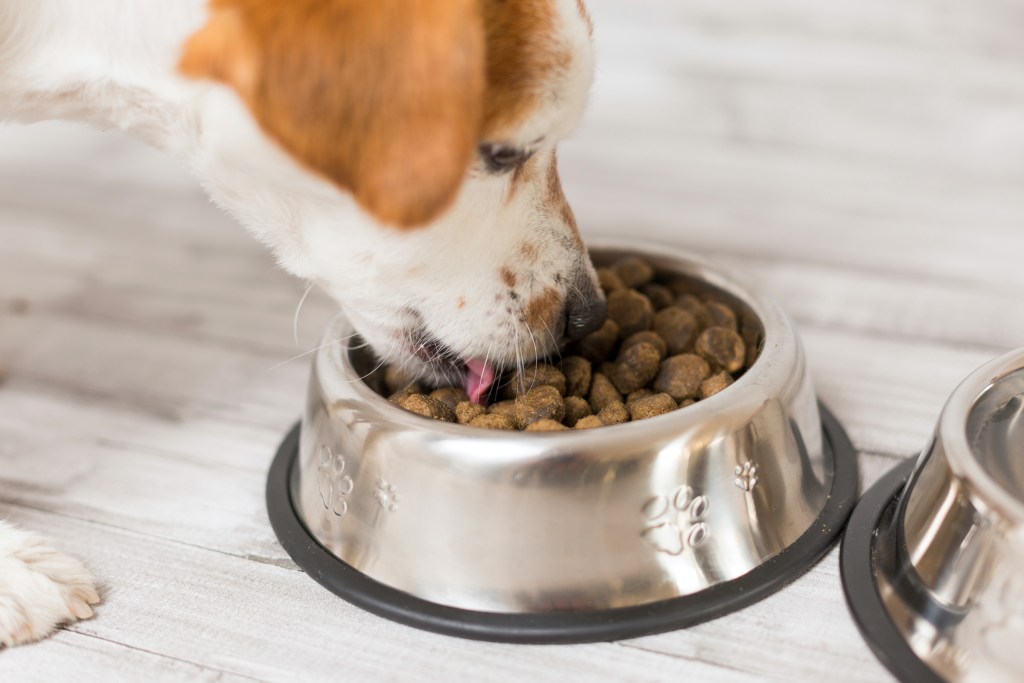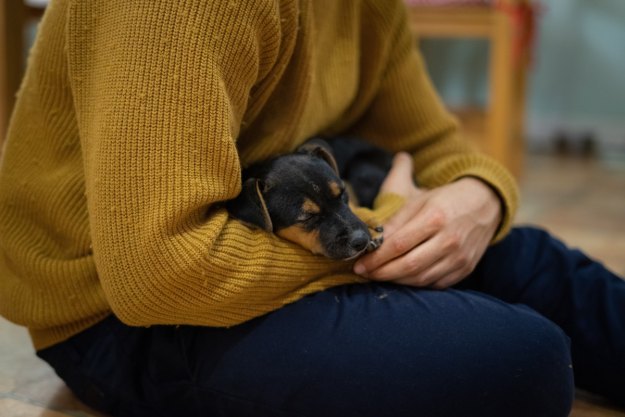Everybody toots, it’s just a fact of life. Whether you’re human, canine, feline, or even bovine (be grateful you’re not dealing with cow farts), flatulence is a totally normal bodily function. It means that your digestive system is working as it’s supposed to, and it can even be a sign of good health. As healthy and hilarious as they can be, dog farts definitely have a downside: some of them downright stink. Not only do they leave the room smelling like a dumpster fire, but they can settle in for a while too. Odor-reducing sprays and scents only go so far, so what else can you do to make dog farts more tolerable?

Why do dogs fart so much?
During digestion, bacteria in the gastrointestinal system help to break down the food from our previous meal, according to the American Kennel Club. Hydrogen sulfide gas can sometimes be created as a byproduct of this process, and there’s only one way to get that gas out of the body: flatulence.
While some gas every day is normal, excessive farting can be a symptom of a larger problem (though typically a mild one). For example, the AKC notes that dogs who eat faster have a higher tendency to swallow air, and therefore have more gas trapped in the body. Food sensitivities and intolerances are also common reasons for excess gas, though it can be tricky to narrow down what exactly is causing the issue.
You can always enlist the help of your trusted veterinarian if your dog’s farts are becoming a big, stinky problem. Most likely, a few small lifestyle changes will be all you need to rid your home of dog farts—well, some of them—for good.

How to deal with stinky dog farts
Another surprising cause of dog farts, whether new or old, can be switching up your pup’s food too quickly, according to the AKC. Even though changing your dog’s diet might help reduce flatulence in the long run, it’s important to make sure it’s a gradual process.
Lifestyle changes
It’s also a good idea to lay off the table scraps if you’re dealing with a particularly gaseous dog. Many human foods are high in fat and sugar, which isn’t healthy for canines anyway, though even dog-safe snacks (like veggies) can cause excess toots.
If your dog is a fast eater, you can invest in a slow-eating bowl to help them take their time. This will decrease the amount of air they swallow while eating, which can be particularly helpful for flat-faced breeds like Shih-Tzus and pugs, which may ingest more air than other breeds, notes Waunakee Veterinary Clinic.
You may also want to consider taking your buddy for a walk after their meals. This can help get their digestive system moving, which can in turn prevent as much gas build-up as before. The best part—even if your pup does have to break wind, it will be outside instead of in your home.
Products to reduce dog farts
Besides switching up your dog’s food, you can make a few dietary additions that will make canine flatulence a lot easier to tolerate. Pumpkin or powdered pumpkin (no additives, please!) contains a high amount of soluble fiber—great for digestive regulation. You may be able to get a similar effect from adding probiotics to your pup’s kibble.
If you’re really concerned about the pungency of your dog’s farts, try activated charcoal. This ingredient reduces the absorption of toxins in the gut, though you need to make sure to buy activated charcoal treats meant for dogs instead of feeding them any other kind of charcoal.
With these tips and tools in mind, you can hopefully get ahead of your dog’s flatulence problem. Once you’ve resolved any digestive issues—and taken care of the whole stink issue—dog farts are a lot more amusing. Trust us.
Editors' Recommendations
- 5 surefire ways to keep your dog off your bed and get a good night’s sleep
- How to stop a dog from peeing in their crate for good in 5 easy-to-follow steps
- Why does my dog have a bald patch on their tail? Here are the answers you need
- Looking for signs your dog has ticks? These telltale symptoms mean you have a flea or tick problem
- My dog is shaking and acting weird – should I worry?




